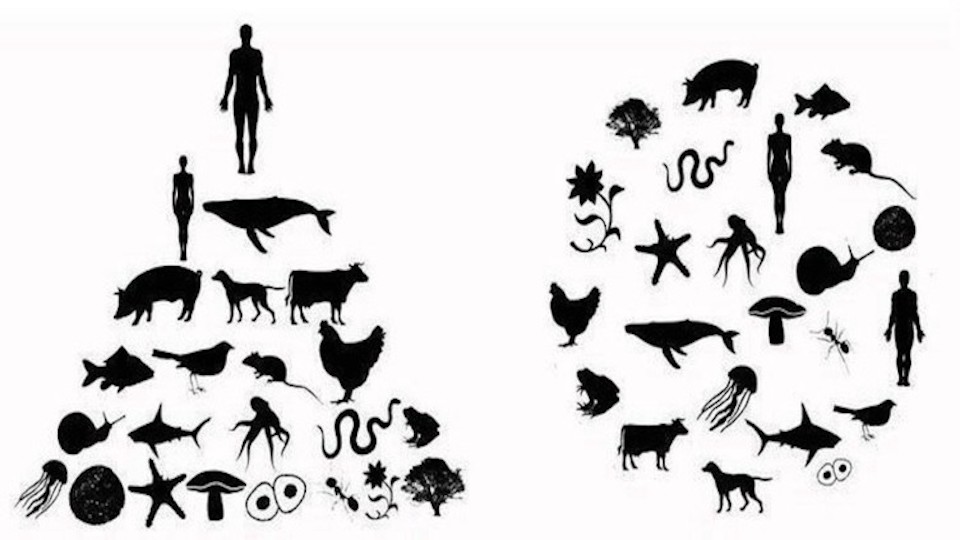The Troubles with the Anthropocentric Ideology – Pietro Paganini
Plants talk and scream. A study has shown that plants react to stress by emitting sounds. On average, scientists and thinkers of all kinds believe that plants behave like humans. This anthropocentric interpretation is dangerous. We still do not know if plants are conscious. We risk preferring emotions to science and producing policies and rules that are dangerous for us and for the protection of nature.
The Troubles with the Anthropocentric Ideology
WHAT HAPPENS Plants speak and scream. For the first time, it has been shown that plants emit sounds in the air, which can be detected from several meters away. The recent study published by Tel Aviv University shows that the sounds emitted carry information about the physiological state of the emitting plant. The sound, and therefore the information, changes depending on the stress they experience (drought, human cutting).
WHY IT’S IMPORTANT It is an extraordinary discovery that helps us better understand the mechanisms of life, but it fuels the necessary debate today more than ever about the relationship between humans, living beings, technology, that is, consciousness.
WATCH IT AGAIN: CUTTING TAXES IS EASY, SIMPLIFYING IT IS HARD >>>
WE ALREADY KNEW that plants react to stressful situations by producing visual, chemical, and tactile signals, to which other organisms can respond.
- When stressed, plants modify their phenotype, visually differentiating themselves, both in color and shape, from unstressed plants. They also emit volatile organic compounds (VOCs), for example, when exposed to drought or herbivores. Organic compounds can also influence nearby plants, increasing their resistance.
- THE DISCOVERY There was no evidence of plants’ ability to emit sounds in the air that are potentially audible and interpretable by other living beings. The discovery of acoustic emissions can help us better understand ecology and evolution, with important implications for biodiversity conservation, for monitoring plants in agriculture and in many other scientific areas, such as consciousness.
IF YOU MISS IS: GOD’S DIET >>>
THE PROBLEM OF CONSCIOUSNESS We now have to consider the problem of interpreting the discovery. For example, from an anthropocentric interpretation, plants would behave like human beings. However, we do not have evidence that this is the case.
THE ANTHROPOCENTRIC APPROACH is a methodologically dangerous method because it places humans above nature. The fact that plants scream does not mean they are conscious and that screaming makes them equal to human beings. Because sound emission is an objective fact that demonstrates a physical (mechanical) reaction to an external stimulus. We have no evidence that the plant reacts with consciousness.
- The response to the external threat certainly generates an alarm signal that played an important role in the evolution of species.
- But the information conveyed is not the product of a conscious action that wants to transmit pain, lament, or crying to elicit a reaction from other conscious subjects. There is no evidence that plants can be conscious.
- They may be, but we still lack the knowledge and tools to prove it.
- On the other hand, we are still at the beginning of studies and reflections on consciousness in humans, let alone animals and plants, or inanimate objects (panpsychism).
WATCH IT IT AGAIN: EUDR SMALLHOLDERS AS A PIVOTAL PLAYER >>>
EMOTIONAL ANTHROPOCENTRIZATION Unfortunately, for the media but also for some prestigious scientific journals (see https://www.yournec.org/exploring-different-environmental-ideologies/), the objective data of emitting sounds corresponds to the fact that plants are crying or screaming, or even alerting neighbors or other living beings. Plants would act consciously. It would be nice to have confirmation that plants have consciousness, but we are not able to prove it.
THIS HUMANIZATION of the world is dangerous even though it is emotionally pleasing and helps us, as human beings, to better understand natural phenomena. Man is used as the unit of measure of the universe. And this is a dangerous way to study nature because it does not allow us to understand its deeper dynamics and establishes a predetermined conception of living.
- It distances us from understanding how the universe works and why the scientific method serves an established and definitive (ideological) truth. Such an approach pushes us to regulate our coexistence with nature in an emotional way, losing sight of the substance of the facts.
DON’T MISS IT: NUTRITION AND NATURE POSITIVE POLICIES IN POLAND >>>
THE PARADOX Furthermore, it is at least contradictory (and paradoxical) that those who have an ecological approach (environmental and definitive ideological) humanize nature. They worry about saving the planet but humanize all the beings that inhabit it – and in an even more contemporary version – they humanize things (panpsychism, things have consciousness and rights).
EMOTIONAL RULES If we look at the rules that Europe has worked on in recent years, we can see this approach. And we should be concerned about the choices to come. It is once again shown that those who rely on ideology tend methodologically to ignore the diversity that is then the richness of our planet and the universe.
- We end up distorting or even discriminating against the individuality of things themselves. We get emotional about bears, chimpanzees, and now plants, while we don’t worry about highly intelligent sharks (90 million killed every year), ants, worms, and flies, which, more than plants, could be endowed with consciousness. They simply do not resemble us or do not find space in the stories in which we humanize nature.
READ IT AGAIN: TOWARD PERSONALISED PRECISIOON DIETS >>>
WHAT TO DO Telling stories about plants crying and screaming when stressed is, for now, a fairy tale, not science. Fairy tales are pleasant because they reassure us but they can be dangerous because they risk deluding us that everything is simple and definitive. In the future, we may discover that things also have consciousness. If we do, we will finally have to admit that man is like the rest of things, and not the other way around.






